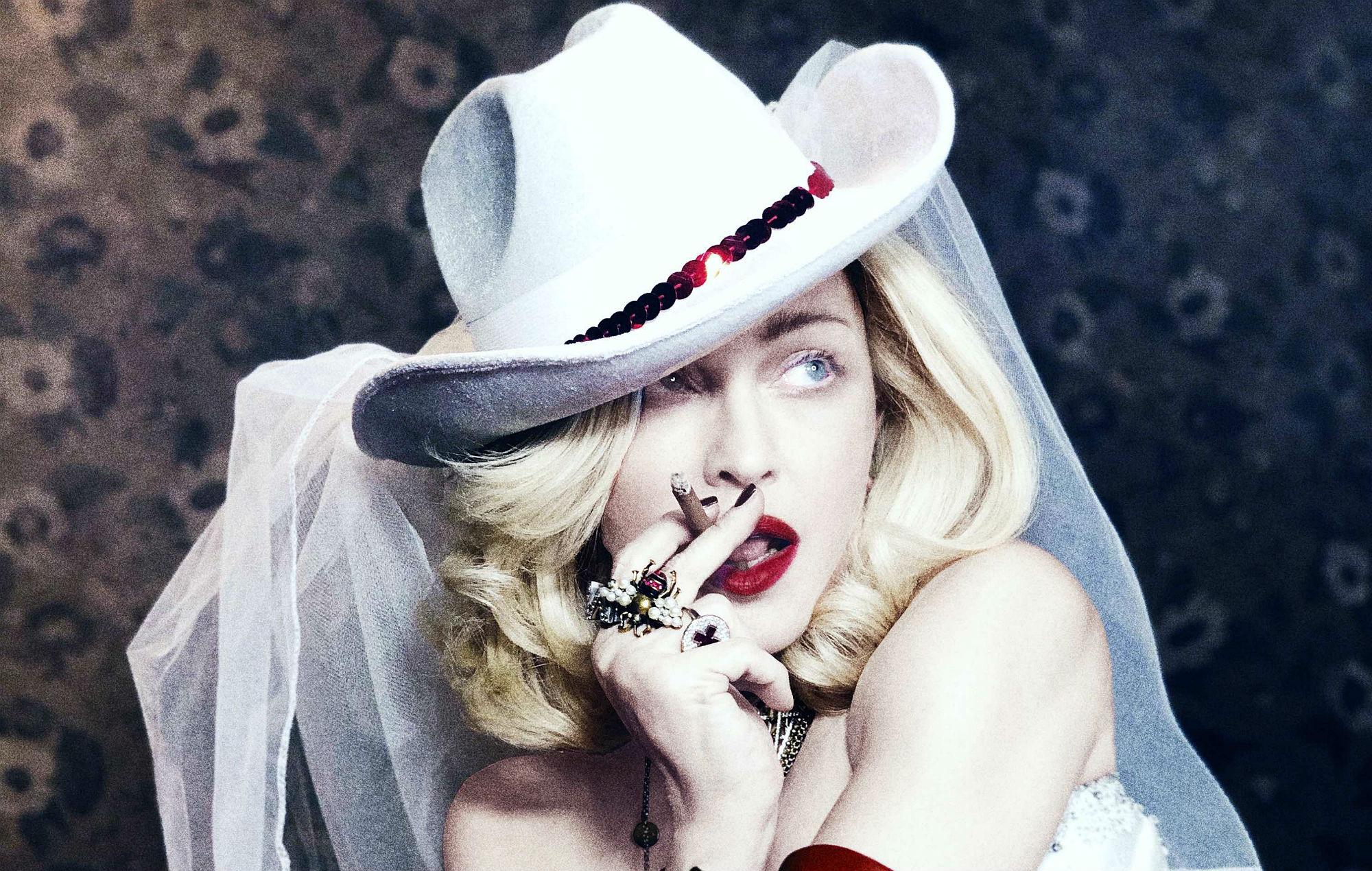Madonna review, Madame X: An intriguing, often brilliant, occasionally awful album
Queen of Pop’s 14th record is such a cultural melange that it sometimes verges on collapsing in on itself. At other times, though, what is thrown at the wall sticks beautifully

Your support helps us to tell the story
From reproductive rights to climate change to Big Tech, The Independent is on the ground when the story is developing. Whether it's investigating the financials of Elon Musk's pro-Trump PAC or producing our latest documentary, 'The A Word', which shines a light on the American women fighting for reproductive rights, we know how important it is to parse out the facts from the messaging.
At such a critical moment in US history, we need reporters on the ground. Your donation allows us to keep sending journalists to speak to both sides of the story.
The Independent is trusted by Americans across the entire political spectrum. And unlike many other quality news outlets, we choose not to lock Americans out of our reporting and analysis with paywalls. We believe quality journalism should be available to everyone, paid for by those who can afford it.
Your support makes all the difference.Madonna’s new album is full of dance tracks. But if any one of them came on in a club, there would be at least 30 seconds during which everyone would stop dancing and stand around in bewilderment.
On “Dark Ballet”, it would happen as the threatening spoken word breakdown kicked in, set to a nightmarish fairground waltz. On “God Control”, it would be prompted by the manically ascending violins – or perhaps the jarring gunshots. And on “I Rise”, it would be the sampled speech from survivors of the Parkland school shooting. With her 14th album, the Queen of Pop isn’t interested in serving up palatable bangers.
Madame X – which comes 36 years after Madonna’s self-titled debut set her on course to becoming the highest-grossing female touring musician in history – is the 60-year-old’s most exciting, hostile, and, well, bonkers record in ages. Her previous album, 2015’s Rebel Heart, was disappointing, more notable for its problematic promotional campaign (she released a series of photos of civil rights activists bound up in black rope to resemble the album artwork, and then compared the album leaking to rape) than for its content. Madame X, by contrast, is endlessly fascinating. It is an intriguing, often brilliant, though occasionally awful record.
Influenced by several years spent living in Portugal, and recorded in Lisbon, London, New York and Los Angeles, Madame X is such a cultural melange – Latin trills, Jamaican dancehall instrumentals, African drums, choral masses and disco beats crop up throughout – that it sometimes verges on collapsing in on itself. At other times, though, what is thrown at the wall sticks beautifully. “Come Alive”, which features London’s Tiffin Children’s Chorus, is vast and cinematic. “I Don’t Search I Find” is a cross between Nina Simone’s “Feeling Good”, a Nineties house track, and an orchestral Bond song (Madonna, of course, recorded the theme for Die Another Day in 2002).
The album is lyrically unbound, too. “People tell me to shut my mouth, that I might get burnt,” she sings on “Dark Ballet” – surely a nod to the shock and horror she has elicited while blazing a trail through pop for the past four decades – “Keep your beautiful lies/ ’Cause I’m not concerned.”
Mostly, though, the record is less a personal riposte than a political one. On “God Control”, clearly an attack on America’s feeble gun-control laws, she sings, sounding as though her jaw is firmly clenched, “When they talk reforms it makes me laugh, they pretend to help, it makes me laugh.” On “Batuka”, a rabble-rousing chant buoyed by the Batukadeiras (a Portugal-based choir of Cape Verdean heritage), she decrees, “Get that old man, put him in a jail, where he can’t stop us, where he can’t hurt us.” It’s not hard to imagine who that old man might be.
Madonna has always positioned herself as a voice for the voiceless. Sometimes she goes too far in that quest and ends up coopting identities. She does so quite literally on the risibly misjudged “Killers Who Are Partying”, on which she declares, that faux-English accent bubbling dangerously to the surface, “I will be gay if the gay are burnt/ I’ll be Africa if Africa is shot down … I’ll be Islam if Islam is hated … I’ll be Native Indian if the Indian has been taken.” It’s well-intentioned, but being an ally doesn’t quite work like that.
A recent New York Times profile (which Madonna hated so much she announced, once again, that it had made her feel raped) admired the singer for eschewing the expectations of how older women should behave. “She might have been doing all this for the younger generations,” it noted, “so that when Miley Cyrus was 60, no one would bat an eyelash if she twerked on stage.” It seems just as likely, though, judging by Madame X, that Madonna is doing it for nobody but herself. As she announces on dancehall bop “Future”, “Don’t tell me to stop ’cause you said so.”
Join our commenting forum
Join thought-provoking conversations, follow other Independent readers and see their replies
Comments